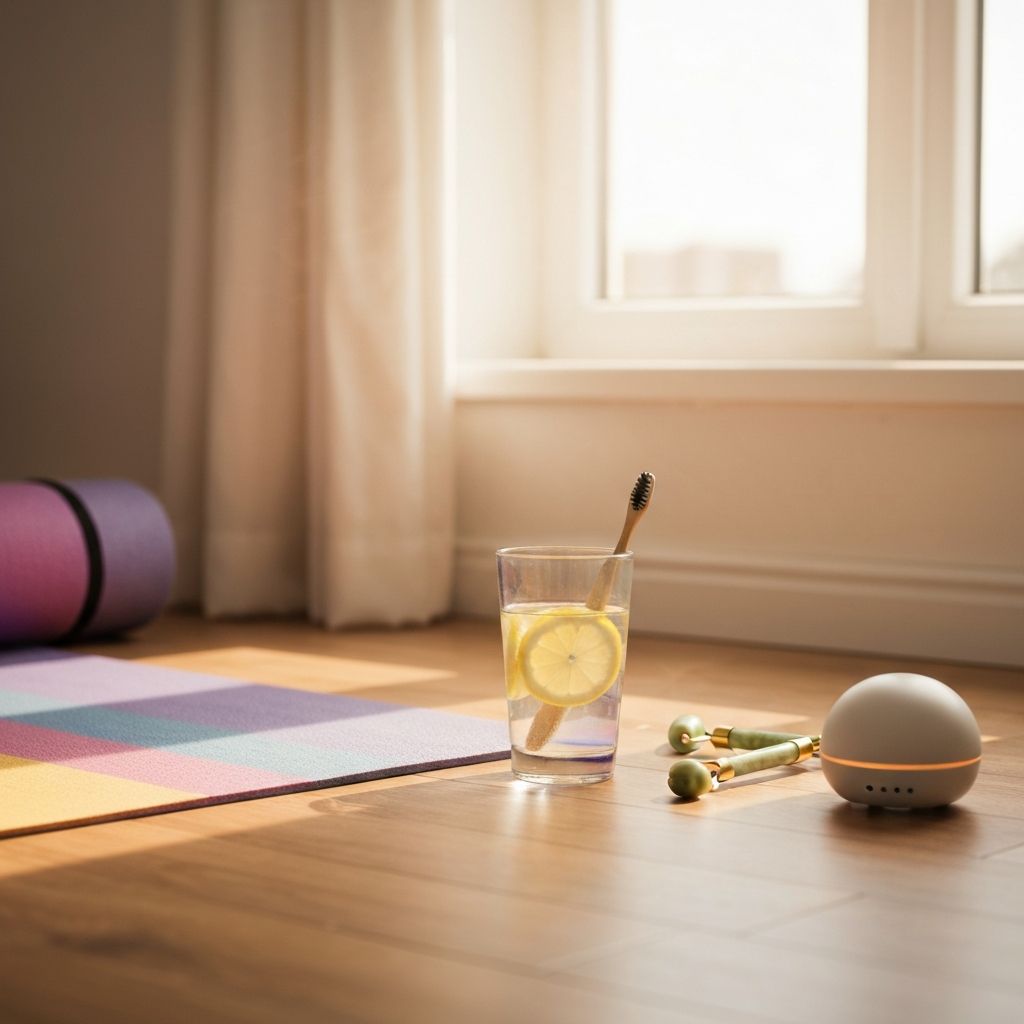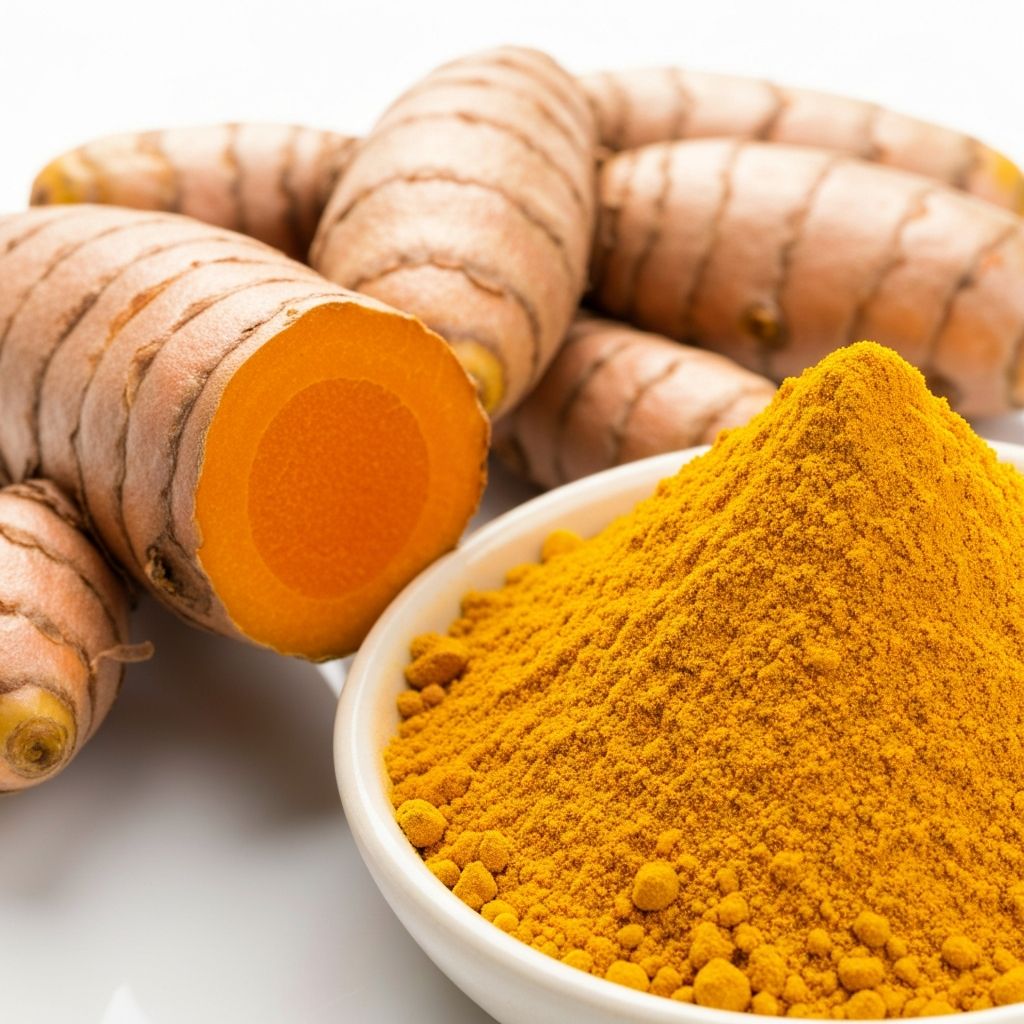How to Support Scalp Wellness Naturally at Home
What You'll Learn
- Learn about natural remedies and their benefits
- Discover gentle, traditional home approaches
- Get expert tips for holistic wellness
- Understand proper usage and precautions
Support scalp wellness and comfort using these simple, traditional home approaches for a healthy scalp.
Dandruff affects nearly 50% of adults worldwide, causing embarrassing white flakes, itchy scalp, and hair concerns. While commercial shampoos offer temporary relief, natural remedies address the root causes - fungal overgrowth, dry scalp, excess oil production, and inflammation. These proven home treatments use ingredients from your kitchen to restore scalp health, eliminate flakes, and promote healthy hair growth without harsh chemicals.
1. Apple Cider Vinegar Scalp Treatment
Apple cider vinegar's acidic nature helps restore the scalp's natural pH balance, creating an environment hostile to the Malassezia fungus that causes dandruff. Its antimicrobial properties also remove product buildup and dead skin cells while promoting healthy hair follicles.
Ingredients & Benefits
Antifungal and pH balancing properties
Dilutes ACV to prevent scalp irritation
Additional antifungal and antimicrobial power
Even application across scalp
Step-by-Step Instructions
Mix equal parts raw ACV and warm water in spray bottle
Add tea tree oil and shake well to combine
Part hair into sections and spray directly onto scalp
Massage gently with fingertips for 2-3 minutes
Leave on for 15-20 minutes, then rinse with cool water
Follow with gentle, sulfate-free shampoo if needed
Pro Tips
- Use raw, unfiltered ACV with 'mother' for best results
- Start with more diluted mixture if you have sensitive scalp
- Apply 2-3 times per week until dandruff clears
- Avoid if you have open cuts or severely irritated scalp
2. Coconut Oil and Tea Tree Deep Treatment Mask
Coconut oil contains lauric acid and caprylic acid, powerful antifungal compounds that penetrate the scalp to eliminate dandruff-causing yeast. Combined with tea tree oil's proven antimicrobial properties, this treatment provides deep moisture while fighting the underlying fungal infection.
Ingredients & Benefits
Antifungal lauric acid and deep moisturizing
Potent antifungal and antibacterial properties
Circulation stimulation and additional antimicrobial effects
Heat retention for better oil penetration
Step-by-Step Instructions
Warm coconut oil slightly until liquid but not hot
Add essential oils and mix thoroughly
Part hair and apply oil mixture directly to scalp
Massage in circular motions for 5-10 minutes
Cover with shower cap and leave for 30-60 minutes
Wash out with clarifying shampoo (may need 2 washes)
Pro Tips
- Patch test essential oils first to check for sensitivity
- Apply to damp hair for easier distribution
- Use weekly for severe dandruff, bi-weekly for maintenance
- May temporarily increase shedding as dead skin clears
3. Baking Soda Gentle Exfoliating Scrub
Baking soda acts as a natural exfoliant to remove dead skin cells and product buildup while balancing scalp pH. Its alkaline nature helps neutralize excess oil and creates an environment that discourages fungal growth, providing immediate relief from itching and flaking.
Ingredients & Benefits
Gentle exfoliation and pH balancing
Creates paste consistency
Antimicrobial properties and moisture
Additional antifungal and pH balancing
Step-by-Step Instructions
Mix baking soda with water to form thick paste
Add honey and lemon juice if using
Apply to wet scalp, focusing on problem areas
Gently massage in circular motions for 2-3 minutes
Let sit for 5-10 minutes for deeper treatment
Rinse thoroughly with lukewarm water
Pro Tips
- Don't scrub too vigorously to avoid scalp irritation
- Use once or twice weekly maximum
- Follow with moisturizing treatment if scalp feels dry
- Discontinue if increased irritation occurs
4. Neem Oil Powerful Antifungal Treatment
Neem oil contains azadirachtin and nimbidin, compounds with proven antifungal and anti-inflammatory properties. Used in Ayurvedic medicine for centuries, neem effectively treats seborrheic dermatitis and dandruff while soothing scalp irritation and promoting healthy hair growth.
Ingredients & Benefits
Powerful antifungal and anti-inflammatory compounds
Dilution and additional moisturizing
Soothing properties and pleasant scent
Antioxidant protection and scalp healing
Step-by-Step Instructions
Mix neem oil with carrier oil to dilute strong scent
Add lavender oil and vitamin E for enhanced benefits
Apply mixture to scalp using cotton ball or fingers
Massage gently and cover entire scalp area
Leave overnight or for minimum 2 hours
Wash out with gentle shampoo in morning
Pro Tips
- Neem has strong odor - lavender helps mask it
- Start with patch test as neem can cause reactions
- Use 2-3 times weekly for active dandruff
- Results typically visible within 2-3 weeks
5. Aloe Vera Soothing and Healing Gel Treatment
Fresh aloe vera gel contains anti-inflammatory compounds, amino acids, and vitamins that soothe irritated scalp while providing antimicrobial benefits. Its cooling properties provide immediate relief from itching while promoting healing of damaged skin and maintaining optimal scalp moisture balance.
Ingredients & Benefits
Anti-inflammatory and soothing properties
Antifungal properties and pH balancing
Antimicrobial and moisturizing benefits
Cooling sensation and circulation boost
Step-by-Step Instructions
Extract fresh gel from aloe vera leaf
Blend with lemon juice and honey until smooth
Add peppermint oil and mix well
Apply generously to scalp and massage gently
Leave for 30-45 minutes for maximum benefit
Rinse with cool water and mild shampoo
Pro Tips
- Use fresh aloe gel within 24 hours for best potency
- Great for sensitive or inflamed scalps
- Can be used daily for severe itching
- Store leftover mixture in refrigerator for cooling effect
6. Fenugreek Seed Antifungal Paste
Fenugreek seeds contain lecithin, proteins, and antifungal compounds that effectively combat dandruff while nourishing the scalp. Rich in amino acids and vitamins, this traditional remedy strengthens hair follicles while eliminating flakes and reducing scalp inflammation.
Ingredients & Benefits
Antifungal lecithin and scalp-nourishing proteins
Softens seeds for grinding
Probiotics for scalp health and moisturizing
pH balancing and additional antifungal power
Step-by-Step Instructions
Soak fenugreek seeds overnight in water
Drain and grind soaked seeds into smooth paste
Mix paste with yogurt and lemon juice
Apply thick layer to scalp and hair roots
Cover with shower cap and leave for 45 minutes
Rinse thoroughly and shampoo gently
Pro Tips
- Grind seeds finely to avoid scratching scalp
- Use full-fat yogurt for better moisturizing
- Apply once weekly for 4-6 weeks
- May temporarily smell strong but rinses out completely
7. Green Tea Antioxidant Scalp Rinse
Green tea's polyphenols and EGCG provide powerful antioxidant and anti-inflammatory benefits for the scalp. Regular use helps reduce sebum production, fight fungal infections, and promote healthy scalp circulation while leaving hair soft and manageable.
Ingredients & Benefits
Antioxidant polyphenols and anti-inflammatory compounds
Extraction medium for active compounds
pH balancing and additional antifungal effects
Circulation stimulation and antimicrobial benefits
Step-by-Step Instructions
Steep green tea bags in hot water for 15-20 minutes
Remove bags and let tea cool to room temperature
Add apple cider vinegar and essential oil
Pour rinse over freshly shampooed hair
Massage into scalp and leave for 5-10 minutes
Rinse with cool water for final cleanse
Pro Tips
- Use high-quality organic green tea for best results
- Can be used 2-3 times weekly as final rinse
- Store leftover rinse in refrigerator for up to 3 days
- Particularly effective for oily scalp conditions
✨ Traditional Wellness Support
✓Eliminates Fungal Infections
Natural antifungal compounds target Malassezia yeast, the primary cause of dandruff
Research: Tea tree oil shows 41% reduction in dandruff severity in clinical studies
✓Restores Scalp pH Balance
Apple cider vinegar and other treatments restore optimal scalp pH (4.5-5.5)
Research: Balanced pH creates hostile environment for fungal growth
✓Reduces Inflammation and Itching
Anti-inflammatory compounds soothe irritated scalp and reduce scratching
Research: Aloe vera reduces scalp inflammation by 60% in dermatitis studies
✓Removes Dead Skin Buildup
Gentle exfoliation clears flakes and allows healthy skin regeneration
Research: Regular exfoliation improves scalp cell turnover and reduces flaking
✓Moisturizes Without Greasiness
Natural oils provide essential moisture while maintaining scalp health
Research: Coconut oil penetrates hair shaft better than mineral oils
✓Promotes Hair Growth
Healthy scalp environment supports stronger, thicker hair growth
Research: Improved scalp health correlates with 23% increase in hair density
💡 How to Use Effectively
Preparation
Always patch test new treatments on small scalp area first
Application
Apply treatments to clean, slightly damp scalp for better absorption
Frequency
Start with 2-3 times weekly, reduce to weekly maintenance once improved
Expected Results
Most treatments show results within 2-4 weeks of consistent use
Best Time
Evening treatments allow longer contact time for maximum effectiveness
⚠️ Important Safety Guidelines
Please Read Carefully
Patch test all new ingredients before full scalp application
Discontinue use if increased irritation or allergic reaction occurs
Avoid over-washing hair as it can worsen dandruff by drying scalp
Essential oils must be diluted - never apply pure to scalp
Some treatments may temporarily increase hair shedding as scalp heals
Pregnant women should avoid certain essential oils like tea tree
If dandruff persists after 6 weeks, consult dermatologist
Severe scalp conditions may require medical treatment alongside natural remedies
❓ Frequently Asked Questions
How long does it take to see results from natural dandruff treatments?
Most people see improvement within 2-3 weeks of consistent use. Severe cases may take 4-6 weeks. Results depend on the underlying cause and consistency of treatment.
Can I use multiple treatments together?
Yes, but introduce one treatment at a time to identify what works best. You can alternate treatments or combine complementary ones like coconut oil with tea tree oil.
Why does my dandruff get worse before it gets better?
This is normal as treatments help shed built-up dead skin cells. The scalp is detoxifying and renewing itself. Continue treatment and improvement should follow within 1-2 weeks.
Are natural treatments safe for color-treated hair?
Most natural treatments are gentler than commercial shampoos. However, ingredients like lemon juice and apple cider vinegar may slightly lighten hair color over time.
How often should I wash my hair when treating dandruff?
2-3 times per week is usually optimal. Over-washing can strip natural oils and worsen dandruff, while under-washing allows buildup that feeds fungal growth.
Which traditional hair care approach interests you most?
Your opinion matters
Which traditional hair care approach interests you most?
Explore More Natural Solutions
Discover our full collection of home remedies and herbal health tips.
View All Remedies

